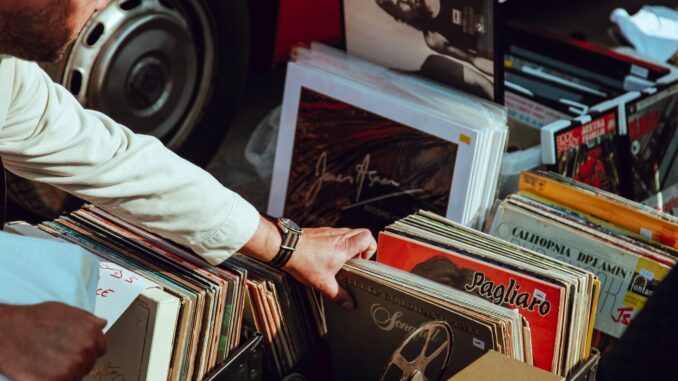
Sitting in class and listening to a classmate of mine attempt to justify the actions of R. Kelly, something was just not sitting right.
When my professor decided to chime in and explain to the entirety of the class that we must be able to separate R. Kelly and his actions from his music, I knew I couldn’t just continue to sit with this feeling.
This quickly snowballed into a discussion in class I never thought I would watch unfold before my eyes. The professor who I will not be naming proceeded to say something along the lines of “Okay what next? Are you going to stop listening to Michael Jackson?” A pedophile.
Michael Jackson is a huge figure in the music industry, so does that excuse his actions?
Is it because he’s too powerful? Too well known? Is it too hard to switch the narrative of musical genius Michael Jackson to child molestor Michael Jackson?
Is this why when Donald Trump said he grabbed women by the pussy nothing happened?
Is it too hard to hold these strong, powerful men accountable for their actions?
Something about the ease in which he said it, the lack of accountability, the immediate justification of another man in the music industry that was accused and proven guilty being brushed under the rug.
Said classmate giving the report attempted to connect this back to cancel culture.
Cancel culture, while immensely toxic and the new fad that is terrorizing the news and media, is not what we are seeing here.
Cancel culture is very simple: someone says or does something that is not deemed acceptable by society and instead of being taught a lesson or learning from your mistake, the entirety of the internet comes at you for a week or two and then whatever was done or said is forgotten and all the hate fades away.
Creators across all platforms deal with this daily; the fear of getting cancelled.
Instead of learning from their mistakes and losing supporters, the everyday consumer blacklists them from the internet. Then as soon as the hype dies down, they are back to watching their content, buying their merch. Almost as if nothing happened.
This is not an example of cancel culture.
Hollywood Insider puts it perfectly:“Whether it’s a person, a product or business, “canceling” something or someone is often confused with consumers holding individuals and corporations accountable. When we remember that we don’t owe millionaire celebrities or multi-billion dollar corporations anything whatsoever, cancel culture doesn’t hold up; it isn’t real.”
You cannot simply “cancel” a person for raping someone, for murdering someone, for being involved in sex trafficking. There are some things that go beyond getting “cancelled.”
In fact, this actually brings us to a topic that I think is often discussed; does content and creator need to be separated or can they be thought of as one.
I remember years ago getting into a similar argument with a classmate in high school. She was listening to Chris Brown, and I confronted her asking how she could listen to the music of a man known for abusing Rihanna. She explained, plain and simple: I like his music, but I don’t like him.
This is a question I’ve since carried with me: can you separate content from the creator? Should you?
R. Kelly is a charged rapist, amongst many other things. So maybe I don’t believe his music should be listened to, because listening to the music means he is gaining a profit, supporting someone’s work is directly supporting them.
Yes, R. Kelly is being punished. Yes, he has been charged, but if someone listens to his music he is continuing to profit, he is being rewarded regardless of the punishment he has received for his actions.
“The issue here is not just ‘Is this artist monstrous?’ but ‘Is this work of art asking me as a reader to be complicit with the artist’s monstrosity’” writes Constance Grady of Vox. “It’s the same argument that has come up repeatedly with R. Kelly, who writes songs about sex and consent and age differences between lovers, and who has also been accused of sexually assaulting very young women and girls.”
Now in broader terms, moving R. Kelly and the atrocities he committed aside. I believe it is safe to say that supporting an artist is done through streaming, and buying merch, etc.
The professor moved on to say it’s the same as having to keep business away from your personal life. But as an example, let’s use Chick-fil-A. I love their food, and I used to eat it all the time. That is until I learned that the owner gave money to conversion therapy programs. I haven’t eaten from them since. It’s the principle of believing that some actions are immoral and not supporting things whether directly or indirectly if they supp ort things you don’t believe in.
This is the same logic that should be carried with musicians. It shouldn’t matter how much you like the music, that’s just an excuse. If you really believe in something, if you really believe that the actions of a person are wrong, then stop supporting them. So maybe you can’t listen to the music you like anymore, so what?
There are more important things.
If we continue to brush things aside like this and make excuses because it’s easier, we simply won’t get anywhere in the attempt to push the media industry forward. We cannot continue to support harmful artists like R. Kelly, because we like some of their music. The Me Too movement has fizzled and cancel culture is growing at an alarming rate. As the consumer, doing something so menial as not listening to the music of a rapist should not even be discussed. It should be an obvious decision.
It is far beyond separating the content from the creator.

